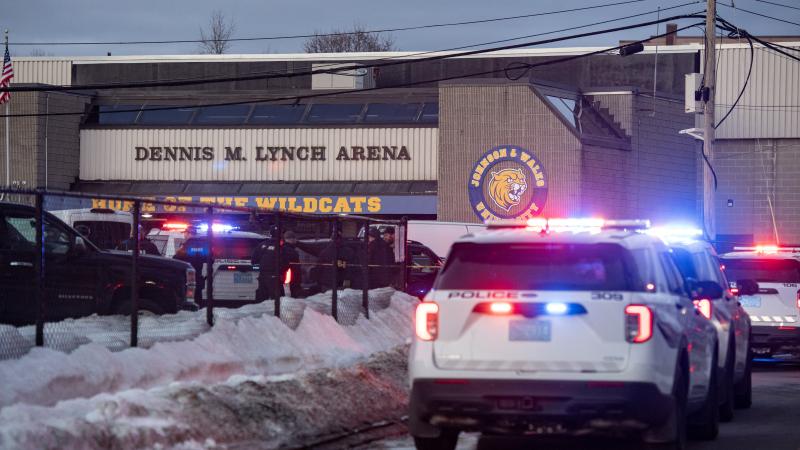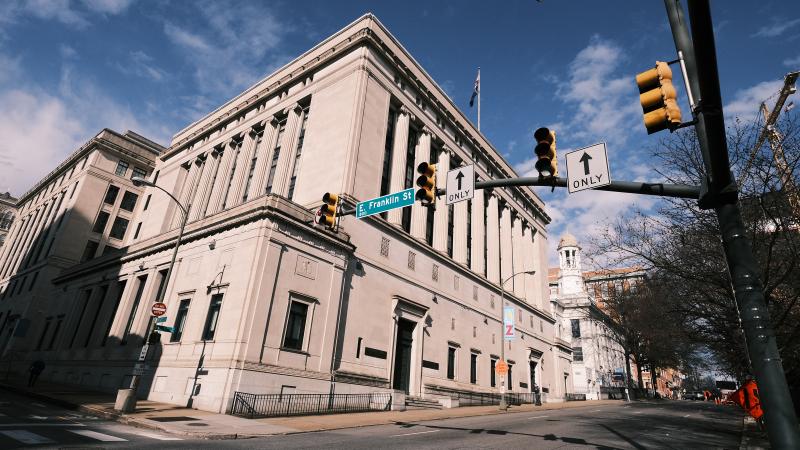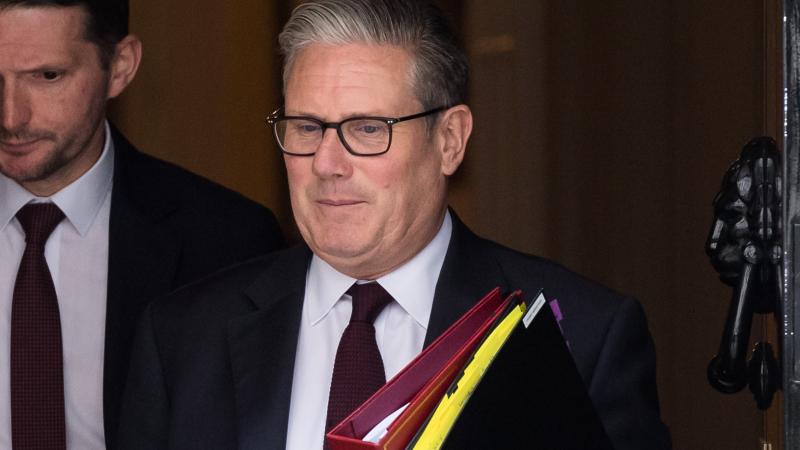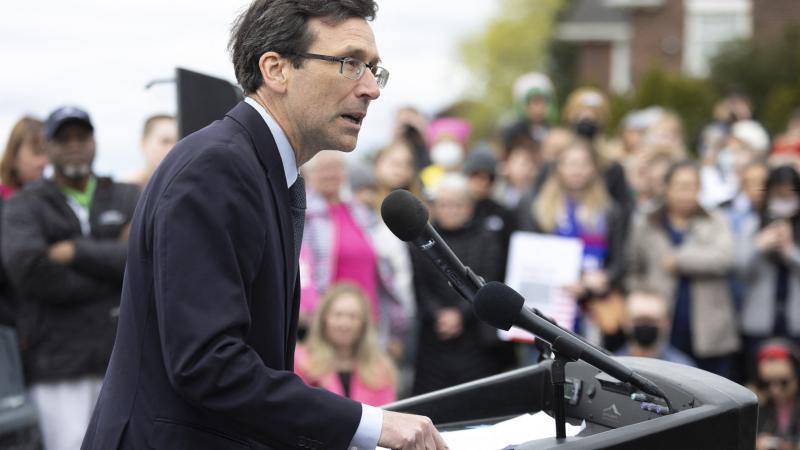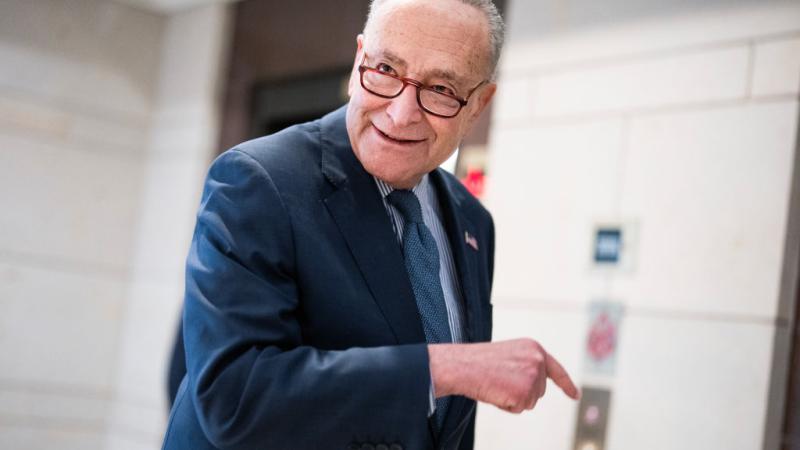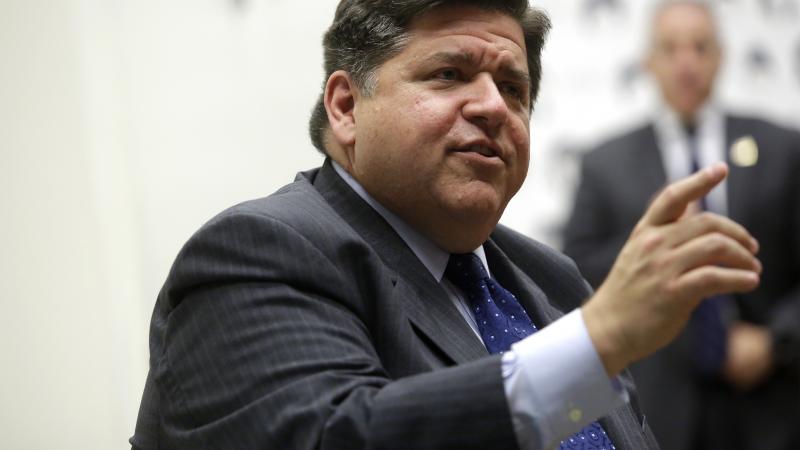CIA review suggests Brennan misled Congress on Steele Dossier and 2016 intel, lawmakers want probe
A new CIA review exposed John Brennan's politicization of intelligence tied to alleged Russian meddling in the 2016 election. The CIA review may have also revealed that Brennan lied to Congress.
A new report by the CIA revealed new details about infirmities and failures with the U.S. intelligence community’s assessment of Russian influence in the 2016 election, criticizing now-former CIA Director John Brennan for his actions and raising the possibility he may have misled Congress. Brennan is currently a Senior National Security Analyst for NBC.
Last week, CIA Director John Ratcliffe released a "lessons learned" review of the December 2016 Intelligence Community Assessment (ICA). That review sharply criticized Brennan for allegedly joining with anti-Trump forces in the FBI, pushing to include British ex-spy Christopher Steele’s baseless anti-Trump dossier in the assessment. In the review, the CIA’s new review also critiqued the “high confidence” assessment by the FBI and the CIA that Russian leader Vladimir Putin had “aspired” to help President Donald Trump win in 2016.
Now-former Rep. Matt Gaetz, R-Fla., spoke on the John Solomon Reports podcast for Just the News on Monday, arguing that the Justice Department should investigate Brennan over his denials about pushing to include the Steele dossier in the ICA. The former congressman said that “there’s a pretty clear shot at Brennan for a review of lying to Congress.”
Brennan was not one of the recipients of then-President Biden's 4,245 pardons or clemency granted, and lying to Congress can be a federal crime under 18 U.S.C. § 1001, which forbids making false statements to the federal government, including Congress. Unlike perjury, it is not limited to statements made under oath, but the statement must be "materially false" and made knowingly and willfully.
The statute of limitations of five years starts to run when the crime is completed, which is when the false statement is made or the false document is submitted. Thus, any alleged false statements Brennan may have made five years ago or more would not be prosecutable. Nonetheless, Brennan testified before the House Judiciary Committee in May 2023, which puts him in the crosshairs of law enforcement action until 2028.
Nobody held accountable...so far
Gaetz had questioned Brennan during a House Judiciary Committee closed-door interview in May 2023, where Brennan had denied playing any role in pushing the dossier into the ICA.
“The Steele Dossier went from being the centerpiece of FISA warrants, the centerpiece of investigations, to now being something so soiled and so tainted as an abuse of intelligence that everyone wants to claim it was someone else who put the Steele Dossier in this critical assessment regarding Russian election interference,” Gaetz said Monday. “CIA Director John Ratcliffe has now said that in fact it was Brennan who made an adjudicatory call that this would be included.”
Gaetz added: “Of course they [the Justice Department] should look at it, and I believe they will. … How do you not look at this? You’ve got the head of the CIA saying that Brennan made this critical determination regarding information that he then in congressional questioning said, oh, he was not involved in that and that he was a total stranger to that being included in that assessment.”
The largely declassified eight-page “lessons learned” CIA review from last week focused on the ICA about Russia and the November 2016 election. It was put together by the CIA's Directorate of Analysis (DA) at Ratcliffe’s direction and concluded that “the decision by agency heads to include the Steele Dossier in the ICA ran counter to fundamental tradecraft principles and ultimately undermined the credibility of a key judgment.”
Since-fired FBI Director James Comey and former FBI Deputy Director Andrew McCabe pushed in December 2016 to include Steele's debunked dossier in the body of the 2016 ICA on alleged Russian meddling. The dossier was included in a classified annex to the assessment with the agreement of Brennan and Comey.
Ratcliffe tweeted last week, in announcing the review being made public, that Trump “has trusted me with helping to end weaponization of U.S. intelligence” and that the report “underscores that the 2016 IC Assessment was conducted through an atypical & corrupt process under the politically charged environments” of Brennan and Comey.
Report: "Brennan showed a preference for narrative consistency over analytical soundness"
The new CIA review stated that “the ICA authors and multiple senior CIA managers — including the two senior leaders of the CIA mission center responsible for Russia — strongly opposed including the Dossier, asserting that it did not meet even the most basic tradecraft standards.” The agency review memo also stated that the CIA’s Deputy Director for Analysis warned in a December 29, 2016 email to Brennan that including the dossier in any form risked “the credibility of the entire paper.”
The CIA review revealed that “despite these objections, Brennan showed a preference for narrative consistency over analytical soundness” and that “when confronted with specific flaws in the Dossier by the two mission center leaders — one with extensive operational experience and the other with a strong analytic background — he appeared more swayed by the Dossier's general conformity with existing theories than by legitimate tradecraft concerns.” The CIA review memo stated that Brennan ultimately formalized his position in writing, arguing that “my bottomline is that I believe that the information warrants inclusion in the report.”
The new CIA memo also stated that “ultimately, agency heads decided to include a two-page summary of the Dossier as an annex to the ICA” with an accompanying disclaimer stating that the dossier material was not used “to reach the analytic conclusions.” The CIA review memo, however, found that “by placing a reference to the annex material in the main body of the ICA as the fourth supporting bullet for the judgment that Putin ‘aspired’ to help Trump win, the ICA implicitly elevated unsubstantiated claims to the status of credible supporting evidence, compromising the analytical integrity of the judgment.”
The CIA lessons learned memo also stated that “it also was markedly unconventional to have Agency heads review and sign off on a draft before it was submitted to the NIC [National Intelligence Council] for review. The NIC did not receive or even see the final draft until just hours before the ICA was due to be published.”
The CIA memo also said that “Brennan downplayed the concern” and responded to Cohen that the “big three” — meaning the CIA, FBI, and NSA — “have every right to agree on language that will be included verbatim in the final version of the paper.” The CIA review said that Brennan acknowledged that the NIC would still have a “right to differ” but “I very much hope that doesn’t happen.”
Just the News posed a number of questions to the CIA asking for more details about some of Brennan’s actions laid out in the CIA’s lessons-learned memo and asking whether the agency believed the former CIA director had misled Congress.
“Under Director Ratcliffe, CIA is committed to ensuring that our analysts have the ability to deliver unvarnished assessments that are free from political influence,” CIA spokesperson Liz Lyons told Just the News. “As evidenced by the newly released review of the 2016 Intelligence Community Assessment, few things are as damaging to public trust as the weaponization of intelligence.”
Brennan did not respond to a request for comment sent to him by Just the News through the speaker's bureau which represents him. The amount of money he demands as a speaker is not made public, although one bureau claims that he charges between $50,000 and $75,000.
Brennan pressed on Hunter Biden's laptop, ICA, and Dossier in 2023
Brennan testified before the House Judiciary Committee in May 2023, where he was mostly questioned about his role as one of the 51 former intelligence officials who signed the infamous Hunter Biden laptop letter in October 2020. But during the questioning — mostly when it was Gaetz’s turn — Brennan was forced to talk about the ICA and the Steele Dossier.
That testimony may now come under further scrutiny, as it is within the five-year statute of limitations for lying to Congress. At the start of the closed-door questioning, Brennan said he understood that he was required to tell the truth, with possible legal repercussions if he did not.
Brennan described the Steele Dossier as “a dossier of information that was collected by a former British intelligence officer, who collected information about Donald Trump, first on behalf of a rival Republican candidate and then in support of the Clinton campaign, that was made available to a variety of media outlets as well as to government officials, the FBI.”
Brennan denied reviewing the Steele Dossier he pushed before the election
The former CIA director also said that “the first time I put eyes on the Steele dossier was in December of 2016” and that “my understanding is it [the dossier] was available to some folks before the [2016] election. I didn't see it.” Brennan said that “I had heard reports about something that was circulating that included salacious information about Donald Trump … I was made aware before that there was some report that was circulating among the media as well as Washington” before the election, but that he hadn’t seen the dossier until after.
Brennan said that “Steele was somebody, my understanding, who was working on behalf of individuals who were promoting someone, but he was not a partisan.”
The former CIA chief claimed that “I was not involved in analyzing the dossier at all. I said the first time I actually saw it, it was after the election. And the CIA was not involved at all with the dossier. You can direct that to the FBI and to others.”
Brennan said he was aware of the FBI’s involvement with the Steele dossier “because there's an annex in the ICA, the Intelligence Community Assessment, that the Bureau asked to be included in there. It was their purview, their area, not ours at all.”
“I received a copy of it from the FBI when they were wanting to have a summary of that document put into the — or, attached to the Intelligence Community Assessment that was done. … And the CIA was very much opposed to having any reference or inclusion of the Steele dossier in the Intelligence Community Assessment,” Brennan said. “And so they sent over a copy of the dossier to say that this was going to be separate from the rest of that assessment. And that's when the CIA was given formal access to it.”
Brennan also said that “my views are contained in the Intelligence Community Assessments that were issued in January of 2017. … It's a very comprehensive, thoughtful description and analysis of what the Russians were doing in that 2016 Presidential election.”
The former CIA director said “no” when asked if he edited the ICA, and said “yes” when asked if he was aware of dissenting opinions about the conclusions of the ICA.
“There were individuals who had read the document within CIA who were not involved in the drafting or the analysis [who disagreed with the ICA conclusions],” Brennan said. “And so I listened to some of their concerns, but I deferred to the experts: the Russian, the counterintelligence, the cyber experts, and the analysts who actually drafted this. And so I did not overturn or change any of the judgments and language in that document.”
John Brennan and the Durham Report
It is unclear what Brennan may have told Durham about his role with the ICA and the Steele dossier, because the transcript of Brennan’s August 2020 interview with Durham's special counsel team has not been made public. It is apparent that these topics came up during Brennan’s interview with Durham, despite quotes from that portion of Brennan’s interview not making it into the Durham report.
It was reported by The Wall Street Journal in April 2020 that “increasingly, investigators are focused on former CIA Director John Brennan, examining whether he pushed for a blunter assessment about Russia’s motivations than others in the intelligence community felt was warranted” and that “Mr. Durham’s team appears to be pressing people involved in that report on whether Mr. Brennan sought to steer the intelligence community agencies to sign on to a ‘high confidence’ assessment.”
Then-Attorney General William Barr also told The New York Times in a June 2020 interview that Durham was looking into the ICA.
“There was definitely Russian, uh, interference. I think Durham is looking at the intelligence community’s ICA — the report that they did in December [2016],” Barr said. “And he’s sort of examining all the information that was … the basis for their conclusions. So to that extent, I still have an open mind, depending on what he finds.”
Nick Shapiro, Brennan’s former deputy chief of staff and senior adviser, said shortly after Brennan spoke with Durham that Brennan and Durham met at CIA headquarters and discussed “issues related to Russia’s interference in the 2016 U.S. presidential election” and that Durham informed Brennan that “he is not a subject or a target of a criminal investigation, and that he is only a witness to events that are under review.”
Brennan also went on MSNBC in September 2020 where he said of the Durham team that “I think they were testing various theories that they had heard and were asking for my views as well as my recollections on things. But it was handled in a very professional manner.”
Brennan prevaricates about Trump-Russia collusion, reviewing materials
Most of the references to Brennan in the Durham report are in reference to what Durham dubbed the “Clinton Plan intelligence” — although there are exceptions. Durham noted that, when interviewing Brennan about former Director of the Federal Bureau of Investigation Robert Mueller's declaring a lack of evidence of collusion between the Trump campaign and Russian authorities, Brennan reportedly offered that "they found no conspiracy."
Despite this admission, the Durham report then noted Brennan's contrary statements published less than a week before his interview with Durham. Brennan had written a New York Times opinion piece titled “John Brennan: President Trump’s Claims of No Collusion Are Hogwash” where Brennan wrote that “Russian denials are, in a word, hogwash. … Mr. Trump’s claims of no collusion are, in a word, hogwash.”
The rest of the Durham report’s mentions of Brennan largely centered on the Clinton Plan intelligence. Durham wrote that, when interviewed, “Brennan generally recalled reviewing the materials but stated he did not recall focusing specifically on its assertions regarding the Clinton campaign's purported plan. Brennan recalled instead focusing on Russia's role in hacking the DNC.”
“On July 28, 2016, Director Brennan met with President Obama and other White House personnel, during which Brennan and the President discussed intelligence relevant to the 2016 presidential election as well as the potential creation of an inter-agency Fusion Cell to synthesize and analyze intelligence about Russian malign influence on the 2016 presidential election,” Durham wrote. “Brennan's recollection was that he spoke with Director Comey on the morning of July 29, 2016, to brief him on his July 28th meeting with the President. Brennan could not recall when he actually saw the Clinton Plan intelligence, but he did not think he had the information when he spoke to Comey on that morning.”
Brennan met with Obama, Biden, Comey, and Attorney General Loretta Lynch on August 3, 2016, according to the Durham report, where “according to Brennan's handwritten notes and his recollections from the meeting, he briefed the other attendees on relevant intelligence known to date on Russian election interference, including the Clinton Plan Intelligence.”
Hillary Clinton adviser: "vilify Donald Trump"
Durham said Brennan's declassified handwritten notes reflect that he briefed the meeting's participants regarding the "alleged approval by Hillary Clinton on 26 July of a proposal from one of her [campaign] advisors to vilify Donald Trump by stirring up a scandal claiming interference by the Russian security services."
“The Office located no evidence that in conducting the Crossfire Hurricane investigation the FBI considered whether and how the Clinton Plan intelligence might impact the investigation,” the Durham report said. “No FBI personnel who were interviewed by the Office recalled Crossfire Hurricane personnel taking any action to vet the Clinton Plan intelligence. … This stands in sharp contrast to its substantial reliance on the uncorroborated Steele Reports, which at least some FBI personnel appeared to know was likely being funded or promoted by the Clinton campaign.”
The Durham report found that the bureau’s rush to investigate Trump was “markedly different from the FBI’s actions with respect to other highly significant intelligence it received from a trusted foreign source pointing to a Clinton campaign plan to vilify Trump by tying him to Vladimir Putin.”
Congress demands more info on Trump-Russia investigations
It remains to be seen whether Congress will demand — and if the Justice Department will provide — access to all of Durham’s interview transcripts, including the interview with Brennan. The Biden-era FBI repeatedly stonewalled attempts to find out who knew and said what and when they did.
Rep. Jim Jordan, R-Ohio, sent a letter last March to FBI Director Kash Patel arguing that “the Committee still must fully assess and understand the lengths to which the FBI went to interfere in the 2016 presidential election.” He asked Patel to hand over a host of documents tied to the false collusion saga — documents which now-former FBI Director Christopher Wray had refused to provide.
Jordan’s letter also asked for any and all documents and transcripts in possession of the FBI which were cited or used by Durham’s inquiry.
Jordan told Just the News on Monday night he believes a Justice Department review of Brennan's testimony is possible.
"It looks like he may have said something that wasn't accurate to Mr. Gates and I, when we deposed him in 2023," the chairman said.
"We want to take a look at this, and we'll see what else Mr. Ratcliffe may do, or what if anything, the Department of Justice may do, what Attorney General Bondi may do with this information as well," he added.
Sen. Chuck Grassley, R-Iowa, and Sen. Ron Johnson, R-Wisc., had sent a letter in May 2023 to Durham noting that key Russiagate figures — Comey, McCabe, and others — had refused to be interviewed by the special counsel, and asking Durham why he had declined to compel their testimony through subpoenas.
Grassley and Johnson also sent a March letter to Patel and Attorney General Pam Bondi noting that in April 2023 they had requested “unredacted transcripts” from DOJ inspector general Michael Horowitz’s investigation into the FBI’s mishandling of the Trump-Russia investigation, but that those transcripts were never handed over. The senators noted that there were 165 transcribed interviews in question, and asked Patel and Bondi to work to remove redactions from the documents and to hand them over to the Senate.
Brennan is “Undaunted” in defending himself
Brennan released a 2020 memoir, Undaunted, where he spun his tale of the controversies surrounding the ICA and the Steele Dossier.
Brennan wrote in his book that Adm. Mike Rogers, then the leader of the NSA, “wasn’t the only one who questioned the confidence level on the judgment in the assessment related to Russia favoring Mr. Trump’s candidacy” and that “two senior managers in the CIA mission center responsible for Russia—one with extensive operational experience and the other with a strong analytic background—visited me in my office and said that they had the same view as Mike Rogers.”
Brennan wrote that “I came to the conclusion that the two officers had not read all the available intelligence. I said that I would not overturn the judgment of the CIA analysts who, as a team, were deeply familiar with all the relevant intelligence and had made the high-confidence judgment. I encouraged the two officers, who said that they raised their concerns with the drafters of the assessment, to discuss their concerns again with the authors.”
The former CIA director wrote that he “didn’t know anything” about the Steele dossier “until late September [2016], when Tom Brokaw, Richard Engel, and a couple of other journalists approached me on the sidelines of a conference in Aspen, Colorado, and asked me whether I had heard about some salacious reporting circulating among media types involving alleged sexual escapades of Mr. Trump in Russia. Although I am not sure, their query might have been related to the Steele Dossier. I told them I had not seen any such reporting.”
Brennan’s book stated that “I would not see the Steele Dossier until mid-December [2016], when I received a copy from the FBI in advance of a discussion on whether a summary of the dossier prepared by the FBI should be included or appended to the classified intelligence community assessment of Russian interference in the election that was being drafted at the time. It was appended.”
Brennan insisted in his book that “the dossier did not inform any of the analysis or the judgments in the assessment itself.”
Brennan appears before the House Intel Committee
The former CIA director’s testimony before the House Intelligence Committee falls outside the five-year statute of limitations, but still contains important information.
Brennan answered “no” to the House Intelligence Committee when asked in May 2017 if the CIA relied on the Steele dossier, saying, “Because we — we didn't. It wasn't part of the corpus of intelligence information that we had. It was not in any way used as a basis for the Intelligence Community assessment that was done. It was — it was not.”
The House Intelligence Committee’s 2018 report noted, however, that NSA Director Rogers “clarified” to the committee that, in late December 2016, a two-page summary of the Steele dossier was "added" as an "Appendix to the ICA draft," and that his consideration of the classified appendix was "part of the overall ICA review/approval process."
The January 2017 assessment from the CIA, the FBI, and the NSA concluded with “high confidence” that Putin “ordered an influence campaign in 2016” and that Russia worked to “undermine public faith in the U.S. democratic process, denigrate former Secretary of State [Hillary] Clinton, and harm her electability and potential presidency” and “developed a clear preference for President-elect Trump.”
Rogers diverged from Brennan and Comey on one key aspect, expressing only “moderate confidence” rather than “high confidence” that Putin had “aspired to help” Trump’s election chances in 2016 by “discrediting” Clinton" and publicly contrasting her unfavorably to him.”
Ratcliffe's new CIA review stated that “NSA and a few other participants were not comfortable with ascribing ‘high confidence’ to the ‘aspired’ judgment. They cited the limited source base, lack of corroborating intelligence, and ‘the possibility for an alternative judgment’ as driving their discomfort.”
A 2018 report from the House Intelligence Committee, chaired at the time by then-Rep. Devin Nunes, R-Calif., concluded that “the majority of the Intelligence Community Assessment judgments on Russia’s election activities employed proper analytic tradecraft” but the “judgments on Putin’s strategic intentions did not.” The House report said it “identified significant intelligence tradecraft failings that undermine confidence in the ICA judgments regarding Putin’s strategic objectives.” That report was not bipartisan.
The Senate Intelligence Committee then released a bipartisan report in 2020 defending the 2016 ICA.
The panel said congressional investigators found no evidence of political pressure and determined the assessment “presents a coherent and well-constructed intelligence basis for the case of unprecedented Russian interference.” The senators also found that “the differing confidence levels on one analytic judgment are justified and properly represented.”
The House Intelligence Committee’s classified findings on the 2016 ICA have been closely held by the CIA since 2018, until Ratcliffe handed the House Intelligence Committee report back over to the committee last week.
Comey downplays Steele Dossier push — and NSA denies any role at all
The Senate Intelligence Committee conducted a closed-door interview with James Comey in June 2017. Comey was asked whether he had insisted that the dossier be part of the ICA, and Comey replied, “I insisted that we bring it to the party, and I was agnostic as to whether it was footnoted in the document itself, put as an annex. I have some recollection of talking to John Brennan maybe at some point saying: I don’t really care, but I think it is relevant and so ought to be part of the consideration.”
The Senate Intelligence Committee conducted another interview with a person whose name is redacted in April 2017.
“On December 27, a SVTC [secure video teleconference] was held between the four deputies of CIA, NSA, FBI, and ODNl, in order to reach an agreement on where to place the Steele materials in the ICA, with the FBI insisting it remain in the body of the ICA,” the redacted official told the committee. “No agreement was reached and, according to the CIA senior officer assigned to the ICA, Director Brennan left it to the analysts to make the call on where to put it. On December 28, Director Comey was still insisting the document be in the body. On December 29, Deputy Director Cohen and Deputy Director McCabe agreed to place the material in an annex.”
Officials from the NSA told the Senate Intelligence Committee in May 2017 that the NSA played no role in the debate over the Steele reporting and the ICA, with NSA analysts telling the committee they had "no role in drafting, no role in its inclusion, no role in reviewing the source material, became aware of it as it was appended.”
FBI slips up, later says Steele Dossier underpinned judgment in the ICA
The Senate Intelligence Committee revealed in its 2020 report that the FBI accidentally said that the Steele Dossier had underpinned at least one of the judgments in the ICA.
The ICA had concluded of the Russian meddling in 2016 that the “Influence Effort Was Boldest Yet in the U.S.” To support this judgment, the FBI included as part of its evidence information directly lifted from the Steele Dossier.
“The LHM [letterhead memorandum] originally submitted to the Committee was an FBI summary of materials FBI had received from Christopher Steele,” the committee wrote in its 2020 report. “The LHM specifically cites the various ‘company reports’ that are included in the Steele material, which are a compilation of reports all titled (and numbered as) ‘company reports.’ Submission of this memo for footnote 222 appears to have been an FBI error, as the LHM did not support the ICA language cited. When the Committee noted this anomaly to the FBI in repeated conversations, as well as noting repeated statements by FBI and CIA that no Steele material was used in the ICA, the FBI withdrew this document.”
The Senate Intelligence Committee also referenced the annex which contained Steele dossier claims, stating that “Annex A represents a summary of information provided to the FBI by Christopher Steele.”
“The second LHM, 'Additional CROWN Reporting for USIC Tasking’ was provided to the Committee as the supporting material for footnote 222,” the committee reported. The Senate committee added that the CIA shared drafting responsibility for the first portion of Annex A, which stated that "some of the FBI source's reporting is consistent with the judgments in this assessment."
What all of this means for Brennan personally remains to be seen, but the truth is only now beginning to be declassified, and accountability is by no means a certainty.
The Facts Inside Our Reporter's Notebook
Links
- lessons learned review
- baseless anti-Trump dossier
- âJohn Solomon Reportsâ podcast
- closed-door interview
- eight-page âlessons learnedâ CIA review
- former FBI Deputy Director Andrew McCabe
- tweeted
- states
- criminal manual
- language
- stated
- revealed
- stated
- stated
- said
- forced to talk about
- closed-door
- reported
- interview
- said
- said
- said
- interviewed
- mentions
- opinion piece
- Durham reportâs mentions of Brennan
- arguing
- letter
- noting
- 2020 memoir, Undaunted,
- Adm. Mike Rogers
- leader of the NSA
- answered
- âclarifiedâ
- concluded
- stated
- found
- new review
- concluded
- bipartisan report
- handed
- interview
- insisted
- told
- recalled
- snippets
- told
- told
- excerpts
- closed door interview
- another interview
- told
- revealed
- wrote
- referenced
